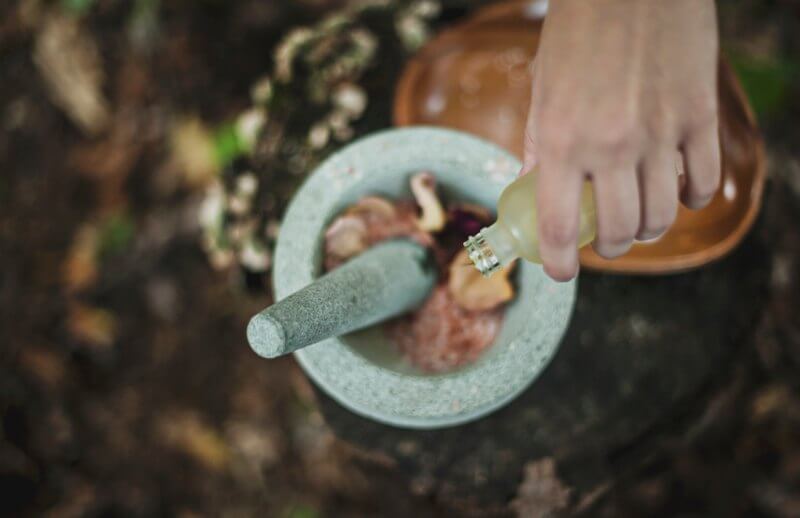Aromatherapy for the Winter Blues
4 Comments
Photo Credit: Katherine Hanlon
As winter settles in, sometimes our moods drop along with the temperatures.
Short days.
Less sunlight.
Add feeling cooped up inside, and you have a recipe for the Winter Blues.
This year, if you find yourself feeling more sluggish than usual, or just not at 100% emotionally, try some aromatherapy to help give you a lift.
Essential oils are the best tools for at-home aromatherapy. They’re easy to use, all-natural, and smell amazing.
Which oils work best?
Bergamot oil is one with a significant amount of research behind its mood-boosting benefits. It’s extracted from the peel of its bitter citrus fruit, and has a fresh, zesty scent. If you like to drink tea, you might recognize bergamot as the citrusy aroma in Earl Grey.
Modern researchers have confirmed the effectiveness of bergamot oil for improving mood. Evidence suggests that by interacting with your central nervous system, it has the ability to help with stress and anxiety by lowering your cortisol levels and heart rate.
If bergamot is not your cup of tea, other great options include:
Try a few different oils and see which ones you personally enjoy. You may prefer a bright scent that energizes you, or, you may find that you like scents with a calming effect.
How can you use them?
For a quick and simple pick-me-up, just uncap your bottle of oil and inhale the scent, breathing slowly and deeply. Gentle, focused breathing combined with a therapeutic scent is a double whammy against the blues.
Put a few drops in your diffuser. Author and essential oil expert Robert Tisserand recommends diffusing oils for thirty minutes to an hour, two to three times a day, taking substantial breaks in between. This way, your nose and nervous system don’t become desensitized to the benefits of the aromas.
Make a rollerball: fill a 10 mL rollerball bottle with jojoba or almond oil, then add 2-3 drops of essential oil. Dab on neck or wrists as needed.
Do you find that certain scents help lift your mood? Share them in the comments — you might just help someone else find their new favorite!
The information provided on flourish is not intended to diagnose, prevent, or treat any medical condition. Content is based on personal research and experiences and is meant for entertainment purposes only. We are not licensed nutritionists or medical professionals. You should always consult with your doctor.
This post has been crafted by the Willow and Sage Team. To learn more, please visit our Who We Are page.
References:
Chang, K.-M., & Shen, C.-W. (2011). Aromatherapy benefits autonomic nervous system regulation for elementary school faculty in taiwan. Evidence-Based Complementary and Alternative Medicine : eCAM, 2011, 1–7.
Ni, C., Hou, W., Kao, C., & Chang, M. (2013). The anxiolytic effect of aromatherapy on patients awaiting ambulatory surgery: a randomized controlled trial. Evidence-Based Complementary and Alternative Medicine, 2013, 1–5.
Peng, S., Koo, M., & Yu, Z. (2009). Effects of music and essential oil inhalation on cardiac autonomic balance in healthy individuals. The Journal of Alternative and Complementary Medicine, 15(1), 53–57.
Tisserand, Robert. (2016). Essential Oils and Seasonal Affective Disorder.
Watanabe, E., Kimura, M., & Rauwald, W. (2015). Effects of Bergamot (Citrus bergamia (Risso) Wright & Arn.) essential oil aromatherapy on mood states, parasympathetic nervous system activity, and salivary cortisol levels in 41 healthy females. Forschende Komplementärmedizin, 22, 43–49.













I have found rosemary, eucalyptus, and oranges to be uplifting.
How do I go about getting old issues. Alot of places where I live do not carry your magazines in Chelsea nyc. 😞
Hi Colleen, our previous issues can be found at: https://stampington.com/willow-and-sage
I enjoy a mix of cedarwood and bergamot diffused at bedtime. Sometimes I add a few drops of black spruce. Helps me sleep!